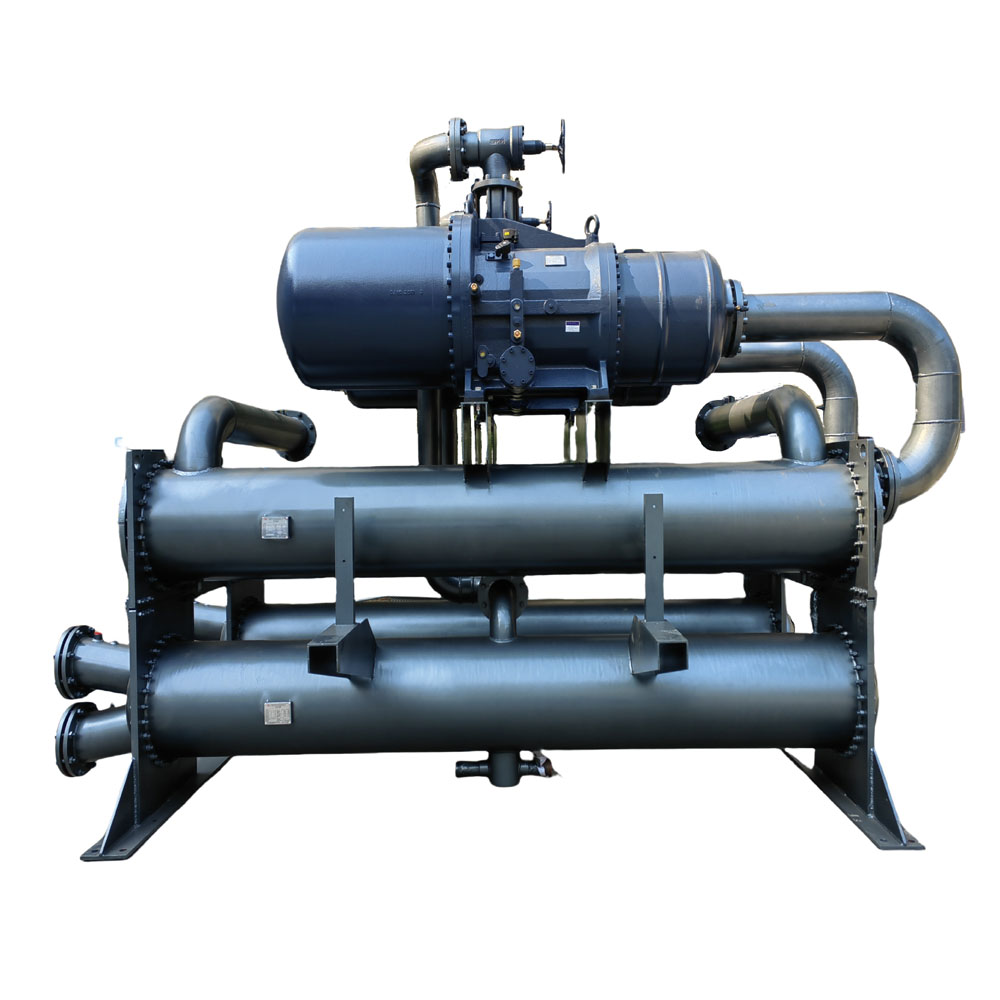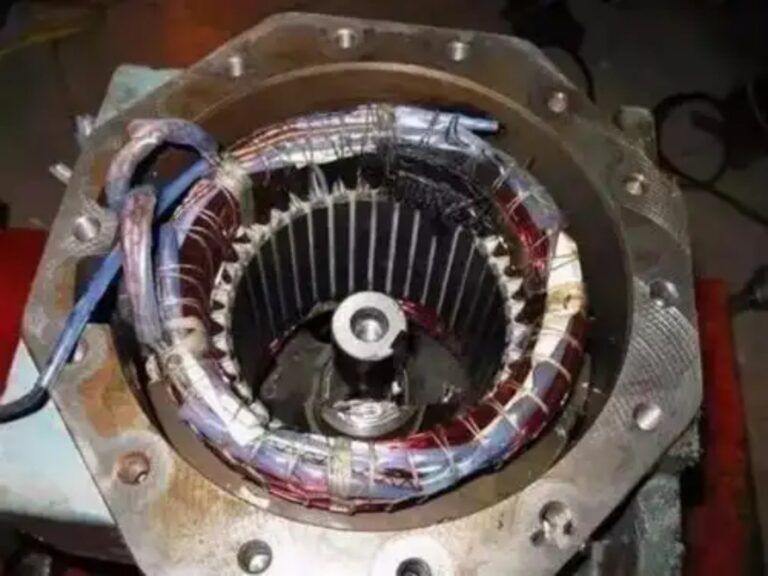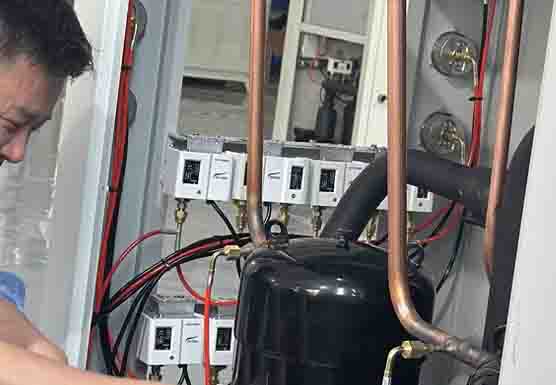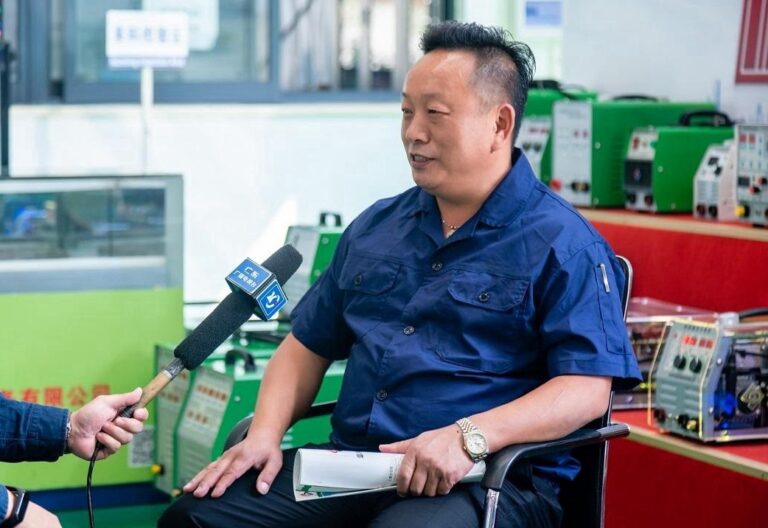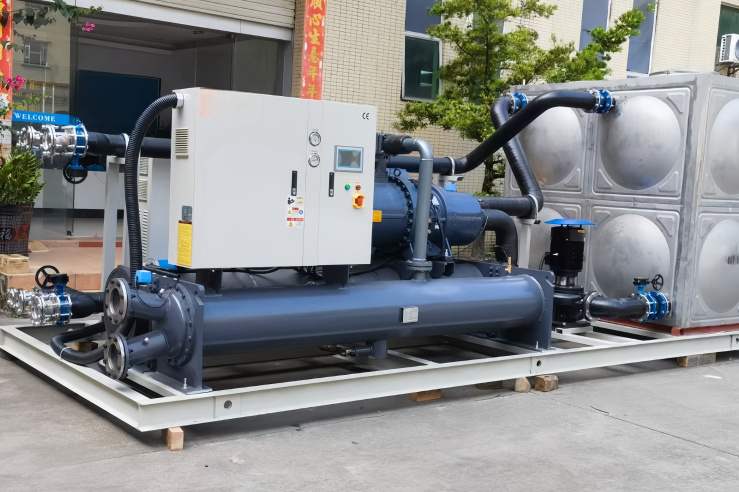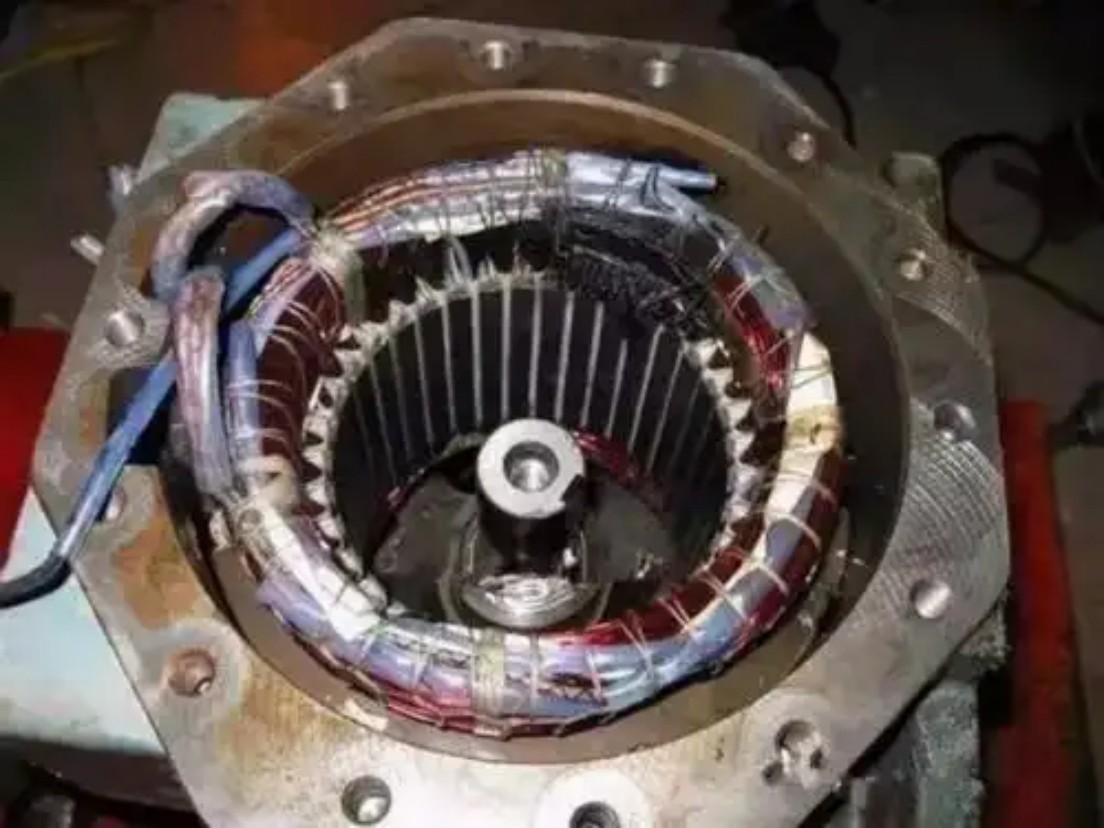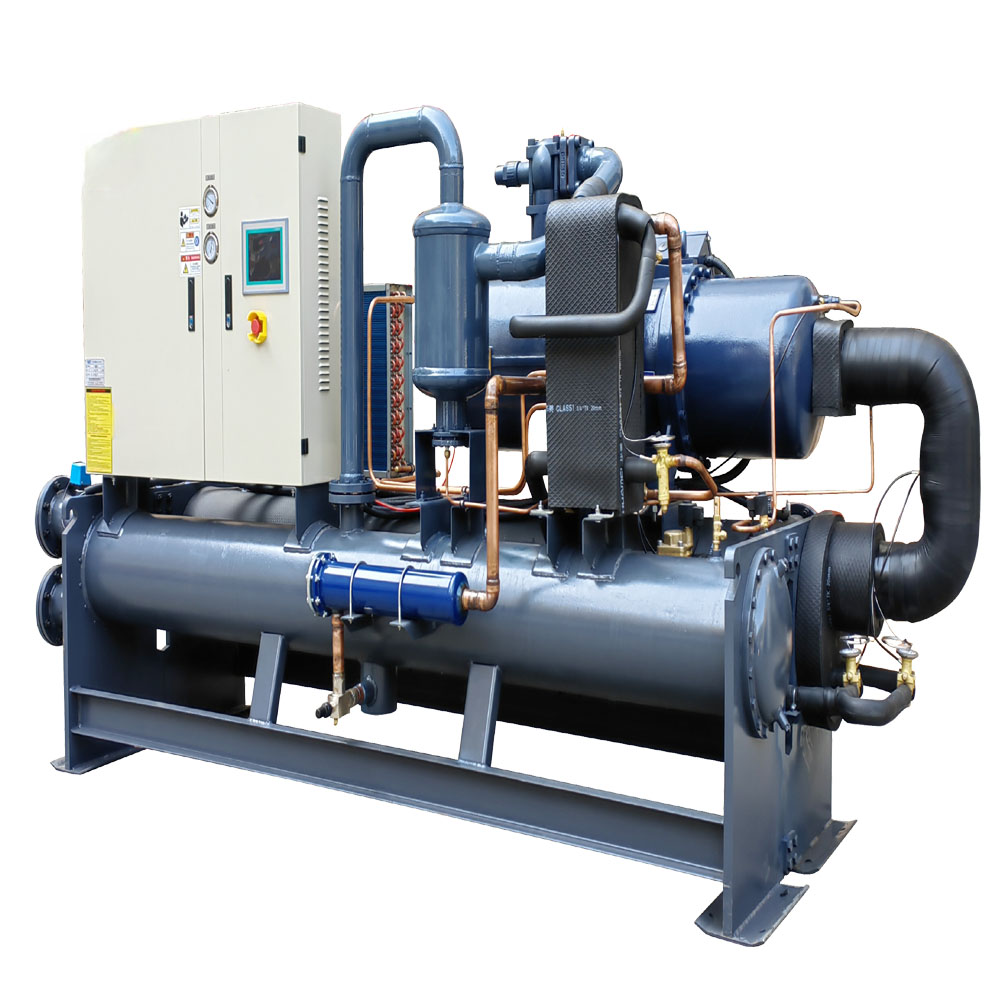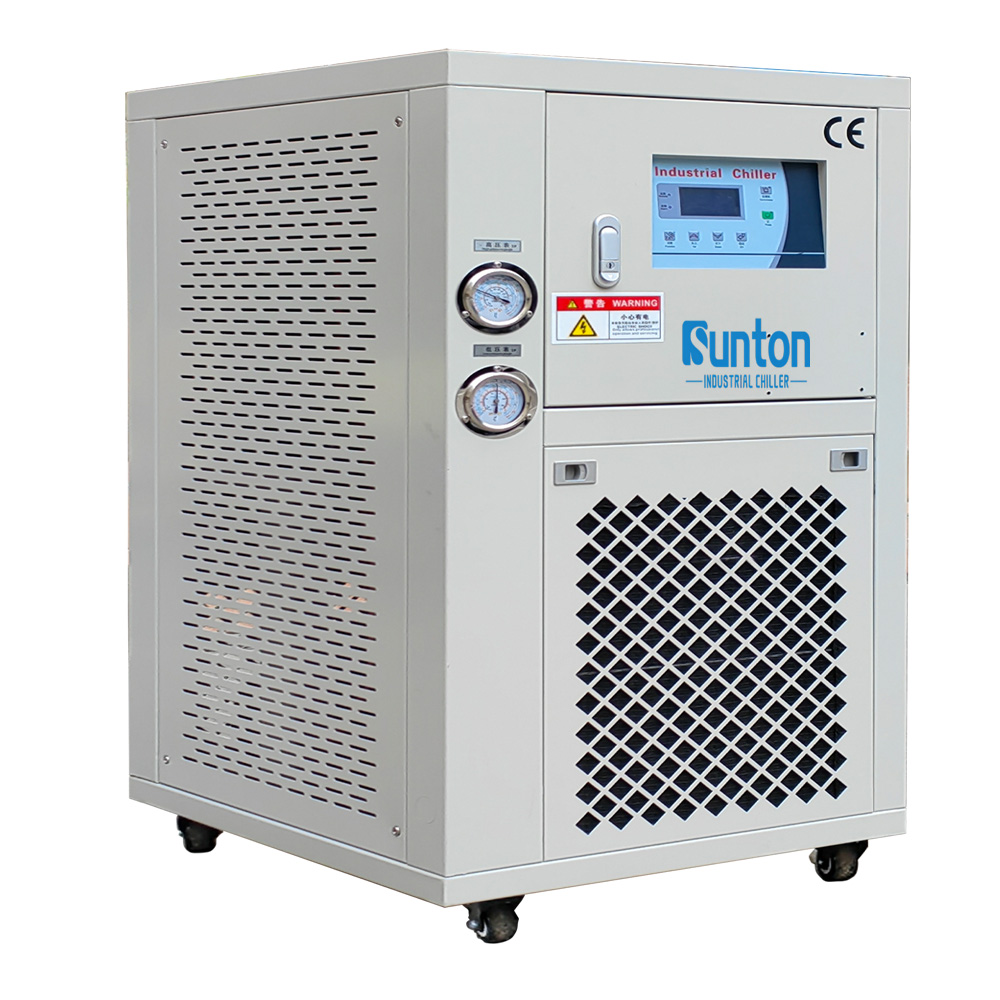-
달링산 산업 광동
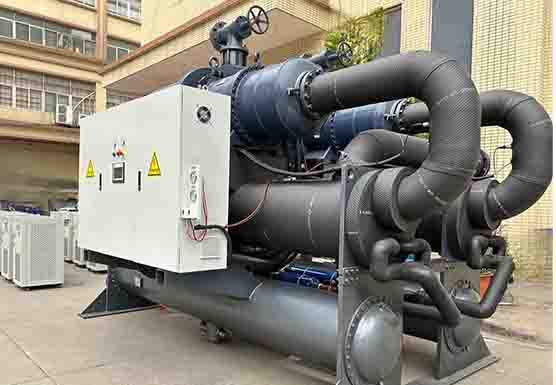
냉각기에는 어떤 유형의 패키지형 수냉식 응축기가 사용됩니까?
의 힘을 공개하다 수냉식 냉각기 산업 현장에서
이 포괄적인 가이드는 수냉식의 복잡한 세계를 탐구합니다. 냉각기, 응용 분야, 이점 및 다양한 산업에 필수적인 이유를 탐구합니다. 산업용 수처리 냉각기 제조 공장에서 우리는 정밀한 온도 제어가 귀사의 운영에서 중요한 역할을 한다는 것을 알고 있습니다. 플라스틱, 식품 및 음료 또는 아래에 나열된 다른 산업에 종사하든 이 기사는 우리의 수냉식 냉각기 솔루션은 프로세스를 최적화하고 최종 이익을 늘릴 수 있습니다. 이 기사는 복잡한 주제를 신비화하지 않고 접근 가능하게 만들고 비즈니스의 효율성과 수익성에 직접적인 영향을 줄 수 있는 실행 가능한 정보를 제공하기 때문에 읽어볼 가치가 있습니다.
목차
1. 수냉식 냉각기란 무엇이고 어떻게 작동하나요?
A 수냉식 냉각기 이다 냉장 사용하는 시스템 물 2차적으로 냉매 제거하다 열 프로세스 또는 공간에서. 공냉식 냉각기 사용하는 주변 공기, 수냉식 냉각기 활용하다 물 외부 소스(예: 냉각탑, 에게 cool 의 응축기. 이 물 흡수 냉매의 열, 그것을 허용합니다 응축 가스에서 액체로 다시 전환합니다. 제 경험에 따르면 이 접근 방식은 특히 고온 환경에서 더 효율적입니다.
그리고 냉각기 시스템 간단한 원칙에 따라 작동합니다: 열 전달. . 냉각기 4가지 주요 구성요소로 구성됩니다. 압축기에서 응축기에서 팽창 밸브, 그리고 증발기. . 압축기 제기하다 압력과 온도 의 냉매 가스. 이 뜨겁고 고압의 가스는 콘덴서에 들어간다, 여기서 냉각됩니다 물의 흐름. 로서 냉매 식으면 액체로 응축됩니다. 액체 냉매 그 다음에는 통과합니다 팽창 밸브, 압력과 온도를 감소시킵니다. 마지막으로, 차가운 냉매 들어간다 증발기를 흡수하여 열 냉각되는 과정 또는 공간에서 다시 가스로 바뀌고 사이클을 새로 시작합니다. 냉각기 많은 것의 필수적인 부분입니다 산업 및 상업 응용 프로그램.
2. 냉각기에 사용되는 세 가지 주요 응축기 유형은 무엇입니까?
콘덴서 모든 것에 있어서 필수적인 구성 요소입니다 냉각기 시스템. 그들은 거부에 대한 책임이 있습니다. 열 에서 냉매, 기체 상태에서 액체 상태로 전환할 수 있습니다. 3가지 주요 콘덴서 유형 에서 사용됨 냉각기:
- 수냉식 응축기: 이름에서 알 수 있듯이 이것들은 콘덴서 사용 물 냉각 매체로. 수냉식 콘덴서 물의 함량이 더 높기 때문에 효율성이 매우 높습니다. 열 전달 공기보다 계수가 높습니다. 이것들은 일반적으로 사용됩니다 패키지형 수냉식 냉각기 그리고 더 큰 산업 시스템. 공통 수냉식 응축기 유형 쉘 앤 튜브, 동축 튜브 인 튜브, 브레이징 플레이트 설계가 포함됩니다. 각 유형은 고유한 장점이 있으며 다양한 응용 분야에 적합합니다.
- 공랭식 응축기: 이러한 콘덴서 사용 주변 공기 식히다 냉매. 팬이 불다 콘덴서 코일 위의 공기, 촉진하다 열 전달. 공랭식 응축기 설치 및 유지 관리가 더 간단하지만 일반적으로 효율성이 떨어집니다. 수냉식 특히 더운 기후의 지역에서 그렇습니다.
- 증발식 응축기: 증발식 응축기 두 가지 원칙을 결합하다 수냉식 그리고 공랭식 응축기. 그들은 물 분무와 공기 흐름을 결합하여 사용합니다. 열 전달 프로세스. 물 위에 뿌려진다 콘덴서 코일그리고 그것이 증발하면서 사라져 버립니다. 열. 동시에 팬이 돌고 있습니다. 콘덴서 코일 위의 공기 더욱 식히기 위해 냉매.
3. 산업용 어플리케이션에서 수냉식 냉각기가 선호되는 이유는 무엇입니까?
수냉식 냉각기 많은 산업 현장에서 선호되는 선택이 되는 여러 가지 장점을 제공합니다.
- 능률: 수냉식 냉각기 에너지 효율성이 더 높습니다 공랭식 상대방. 물은 흡수력이 훨씬 더 높습니다. 열 공기보다 더 효과적입니다. 열 전달이는 특히 대규모 작업에서 운영 비용이 낮아짐을 의미합니다.
- 높은 주변 온도에서의 성능: 주변 온도가 높은 환경에서는 수냉식 냉각기 성과 수준을 유지합니다. 냉각탑 상당히 줄일 수 있습니다 물의 온도, 효율성을 보장 응축기 더운 기후에서도 작동 가능.
- 공간 절약: 수냉식 냉각기 종종 더 컴팩트하다 공랭식 특히 더 큰 용량의 단위. 이는 공간이 매우 부족한 시설에서 상당한 이점이 될 수 있습니다.
- 더 조용한 작동: 수냉식 냉각기 일반적으로 더 조용하게 작동합니다 공랭식 이러한 장치는 소음에 민감한 환경에서 더 나은 선택이 될 수 있습니다.
예를 들어, 우리 공장에서는 한 번 오래된 것을 교체했습니다. 공랭식 새로운 시스템 수냉식 1. 차이점은 즉각적이었습니다. 에너지 비용 절감, 조용한 작동, 그리고 가장 중요한 것은 더 일관된 냉각 성능입니다.
4. 수냉식 냉각기는 플라스틱 및 고무 산업에 어떤 이점이 있습니까?
플라스틱 및 고무 산업에서 정확한 온도 제어는 제품 품질과 일관성을 유지하는 데 필수적입니다. 수냉식 냉각기 다음을 포함한 여러 프로세스에서 중요한 역할을 합니다.
- 사출 성형: 냉각기 금형을 빠르고 균등하게 냉각하여 플라스틱 부품이 적절히 응고되고 원하는 모양과 마감이 되도록 하는 데 사용됩니다.
- 압출: 냉각기 압출된 플라스틱이 다이에서 나올 때 냉각시켜 변형을 방지하고 일관된 치수를 보장합니다.
- 블로우 몰딩: 냉각기 금형과 파리손(플라스틱 병의 예비 성형품)을 냉각하여 적절한 벽 두께를 보장하고 결함을 방지하는 데 사용됩니다.
- 열성형: 냉각기 가열 및 성형 과정 동안 플라스틱 시트의 온도를 조절하여 균일한 가열을 보장하고 뒤틀림을 방지합니다.
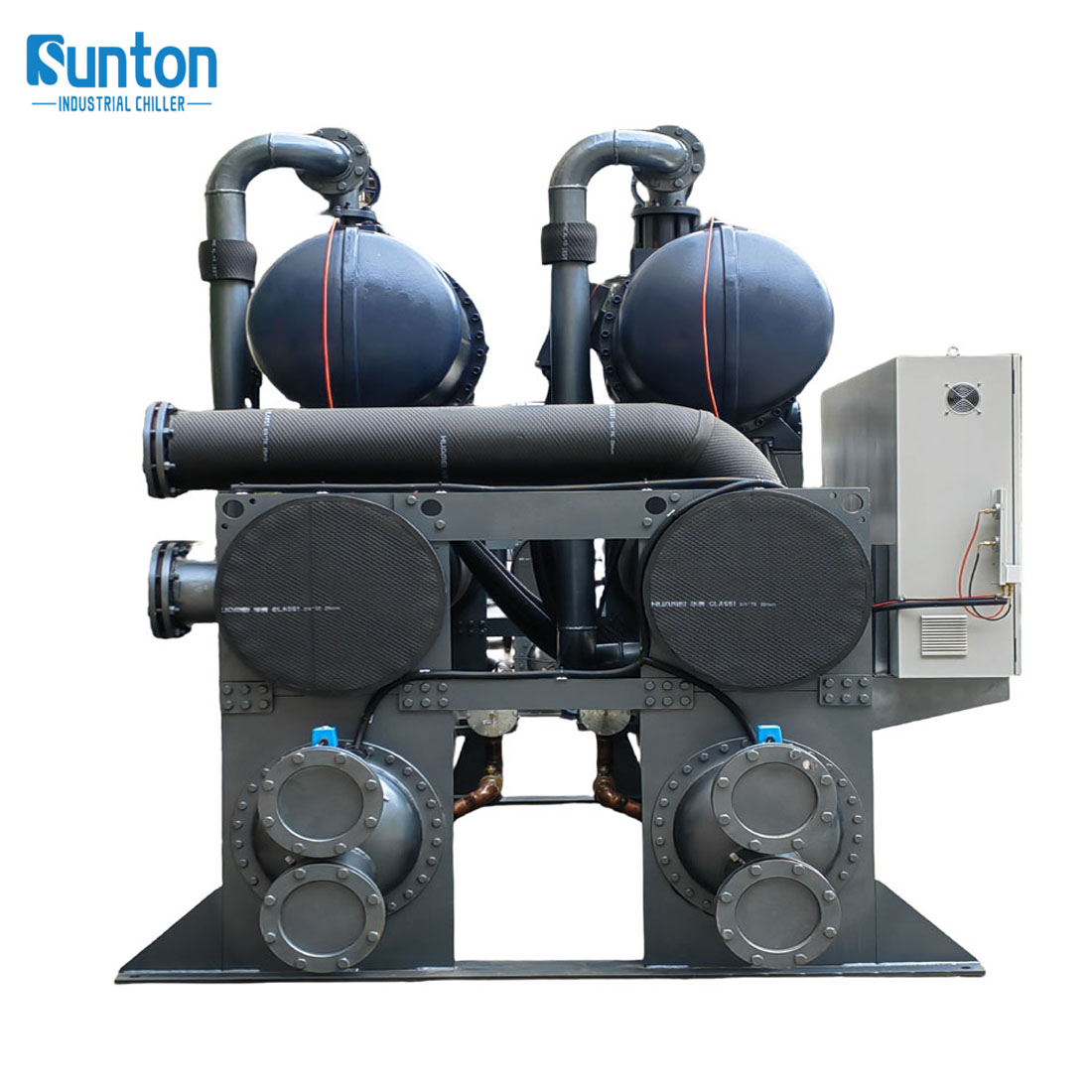
5. 냉각기는 식품 및 음료 산업에서 어떤 역할을 합니까?
식품 및 음료 산업은 식품 안전, 품질 및 보존을 위해 냉장 및 온도 제어에 크게 의존합니다. 수냉식 냉각기 다음과 같은 다양한 응용 분야에서 필수적입니다.
- 양조장: 냉각기 맥아당화 과정 중에 추출된 액체인 맥아즙을 끓인 후 빠르게 식히는 데 사용되며, 이는 발효 과정에 필수적입니다. 또한 올바른 발효 온도를 유지하는 데 도움이 됩니다.
양조장용 산업용 글리콜 냉각기 - 유제품 가공: 냉각기 저온 살균 후 우유를 빠르게 식혀 신선도를 유지하고 유통기한을 연장하는 데 사용됩니다.
- 포도주 양조장: 냉각기 발효 및 보관 중에 온도를 조절하여 와인의 품질과 일관성을 보장합니다.
- 식품 가공: 냉각기 구운 식품 냉각, 음료 냉장, 식품 냉동 등 다양한 식품 가공 분야에 사용됩니다.
6. 화학 및 제약 산업에서 온도 제어는 얼마나 중요합니까?
화학 및 제약 산업에서 정밀한 온도 제어는 단순히 효율성만을 위한 것이 아닙니다. 이는 종종 안전과 규정 준수와 관련된 문제입니다. 수냉식 냉각기 다음에서 중요합니다:
- 화학 반응: 많은 화학 반응은 발열 반응입니다. 즉, 열을 발생시킵니다. 냉각기 이것을 제거하는 데 사용됩니다 열반응이 안전하게 그리고 원하는 속도로 진행되는지 확인합니다.
- 제약 제조: 냉각기 약물 제조의 여러 단계에서 정확한 온도를 유지하여 제품 안정성, 효능 및 규제 기준 준수를 보장합니다.
- 화학 물질 및 의약품 보관: 많은 화학물질과 의약품은 안정성을 유지하고 분해를 방지하기 위해 특정 보관 온도가 필요합니다. 냉각기 저장 시설에 필요한 냉각을 제공합니다.
- 용매 회수: 냉각기 용매 회수 시스템에서 용매 증기를 응축하여 재사용하고 환경 영향을 줄이는 데 사용됩니다.
7. 수냉식 냉각기가 기계 가공 및 레이저 산업의 효율성을 향상시킬 수 있습니까?
물론입니다! 가공 및 레이저 산업에서 열 상당한 도전이 될 수 있습니다. 수냉식 냉각기 다음과 같은 여러 가지 방법으로 효율성과 생산성을 향상시킬 수 있습니다.
- 가공: 밀링, 드릴링, 연삭과 같은 가공 작업 중에 상당한 마찰이 발생합니다. 열. 냉각기 절삭유를 냉각하는 데 사용되며 이를 통해 이를 분산시키는 데 도움이 됩니다. 열공구 마모를 방지하고, 표면 조도를 개선하고, 가공 속도를 높입니다.
- 레이저 절단 및 용접: 레이저는 강렬한 열최적의 성능과 수명을 위해서는 정확한 온도 제어가 필수적입니다. 수냉식 냉각기 레이저 소스, 광학 장치 및 기타 구성품을 냉각하여 일관된 빔 품질을 보장하고 손상을 방지하는 데 사용됩니다.
공냉식 스크류 냉각기 - 3D 프린팅: 선택적 레이저 소결(SLS)과 같은 일부 3D 프린팅 공정에는 정밀한 온도 제어가 필요합니다. 냉각기 빌드 챔버 내에서 최적의 온도를 유지하는 데 사용할 수 있어 일관된 부품 품질을 보장합니다.
8. 수냉식 냉각기는 데이터 센터와 실험실에 적합합니까?
예, 수냉식 냉각기 데이터 센터에서 점점 더 인기를 얻고 있으며 실험실에도 적합합니다.
- 데이터 센터: 데이터 센터는 엄청난 양의 열 서버 및 기타 전자 장비의 밀도가 높기 때문입니다. 수냉식 냉각기 이러한 시설을 냉각하는 매우 효율적인 방법을 제공하여 에너지 소비와 운영 비용을 줄입니다. 또한 더 높은 전력 밀도를 달성하여 더 작은 공간에서 더 많은 컴퓨팅 성능을 제공할 수 있습니다.
- 실험실: 실험실에서는 실험, 샘플 보관, 장비 작동을 위해 정밀한 온도 제어가 필요한 경우가 많습니다. 수냉식 냉각기 인큐베이터, 냉장실, 분석 장비 등 다양한 실험실 응용 분야에 안정적이고 신뢰할 수 있는 냉각을 제공할 수 있습니다.
9. 수냉식 냉각기의 중요한 유지관리 고려사항은 무엇입니까?
적절한 유지관리는 장기적인 성능과 안정성을 보장하는 데 필수적입니다. 수냉식 냉각기. 주요 유지 관리 고려 사항은 다음과 같습니다.
- 물 처리: 품질 물 에서 사용됨 냉각기 시스템은 중요합니다. 적절한 수처리 스케일링을 방지하는 것이 필요합니다. 부식, 생물학적 성장으로 인해 효율성이 떨어지고 장비가 손상될 수 있습니다.
- 정기 검사: 누출을 확인하고 모니터링하기 위해 정기 검사를 수행해야 합니다. 냉매 수준을 검사하고 전기 연결을 검사하고 전반적인 상태를 평가합니다. 냉각기.
- 콘덴서 세척: 그리고 콘덴서 튜브 최적의 상태를 유지하기 위해 석회질이나 이물질이 쌓이지 않도록 정기적으로 청소해야 합니다. 열 전달.
- 압축기 유지관리: 그리고 압축기 의 핵심은 냉각기, 그리고 적절한 유지관리가 중요합니다. 여기에는 오일 레벨 확인, 벨트 및 풀리 검사(해당되는 경우), 비정상적인 소음이나 진동 모니터링이 포함됩니다.
| 유지 보수 작업 | 빈도 | 중요성 |
| 수처리 | 전진 | 스케일링, 부식 및 생물학적 성장을 방지합니다. |
| 검사 | 월별/분기별 | 누출을 감지하고 냉매 수준을 모니터링하며 전반적인 상태를 평가합니다. |
| 콘덴서 세척 | 매년/필요에 따라 | 최적의 열 전달을 보장합니다 |
| 압축기 유지관리 | 제조업체에 따라 | 냉각기 성능과 수명에 필수적입니다. |
| 물 펌프 검사 | 매년 | 적절한 것을 보장합니다 물의 흐름 펌프 고장을 방지합니다 |
| 코일 점검 | 반기별 | 손상 또는 막힘이 있는지 확인합니다. 열 전달 |
| 냉매 레벨 확인 | 계간지 | 유지한다 냉각기 효율성을 높이고 냉매 부족으로 인한 손상을 방지합니다. |
| 전기 점검 | 매년 | 전기 부품의 안전과 적절한 작동을 보장합니다. |
| 필터 교체 | 제조업체에 따라 | 시스템을 깨끗하게 유지하고 막힘을 방지합니다. |
| 누출 테스트 | 매년 | 냉매 손실을 방지하고 시스템 무결성을 보장합니다. |
| 진동 분석 | 매년 | 이동 부품과 관련된 잠재적 문제를 감지합니다. 압축기 또는 팬 |
10. 귀하의 필요에 맞는 수냉식 냉각기를 선택하는 방법은 무엇입니까?
오른쪽 선택 수냉식 냉각기 여러 가지 요소를 신중하게 고려해야 합니다.
- 냉각 용량: 애플리케이션의 열 부하에 따라 필요한 냉각 용량을 결정하세요.
- 물의 온도: 원하는 것을 고려하세요 차가운 물 온도 및 사용 가능 물 소스 온도.
수냉식 스크류 칠러 - 유량: 필요한 것을 결정하십시오 물의 흐름 적절한 비율을 보장하기 위해 열 전달.
- 콘덴서 유형: 적절한 것을 선택하세요 콘덴서의 종류 (쉘 앤 튜브, 동축 또는 브레이징 플레이트)는 용도와 수질에 따라 선택할 수 있습니다.
- 압축기 유형: 선택하세요 압축기 유형(스크롤, 나사 또는 원심 분리기귀하의 용량 요구 사항과 효율성 목표에 가장 적합한 솔루션을 선택하세요.
- 냉매 유형: 유형을 고려하십시오 냉매 에서 사용됨 냉각기환경 규정과 효율성 측면을 고려합니다.
자주 묻는 질문
공랭식 냉각기보다 수랭식 냉각기를 사용하는 주요 장점은 무엇입니까?
수냉식 냉각기 일반적으로 에너지 효율성이 더 높고 높은 주변 온도에서 더 나은 성능을 발휘하며 발자국이 더 작고 더 조용하게 작동합니다. 공냉식 냉각기.
수냉식 냉각기는 얼마나 자주 정비해야 합니까?
A 수냉식 냉각기 매월 또는 분기별로 검사를 실시해야 하며, 다음과 같은 보다 철저한 유지관리가 필요합니다. 응축기 청소는 매년 또는 필요에 따라 수행됩니다. 압축기 제조업체의 권장사항에 따라 유지관리해야 합니다.
수냉식 냉각기의 일반적인 수명은 얼마입니까?
적절한 유지 관리를 통해 수냉식 냉각기 15~20년, 심지어 그 이상 지속될 수도 있습니다.
수냉식 냉각기에는 항상 냉각탑이 필요한가요?
항상 그런 것은 아니다. 냉각탑 일반적으로 사용되는 기타 물 우물, 호수 또는 도시와 같은 출처 상수도충분한 유량과 온도가 제공되는 경우 사용될 수 있습니다.
어떤 산업 분야에서 수냉식 냉각기를 일반적으로 사용합니까?
수냉식 냉각기 플라스틱과 고무, 식품과 음료, 화학과 제약, 기계 가공, 레이저, 인쇄, 의료, 실험실, 데이터 센터를 포함한 광범위한 산업에서 사용됩니다.
필요한 수냉식 냉각기 크기를 어떻게 알 수 있나요?
의 크기 냉각기 응용 프로그램의 열 부하에 따라 달라집니다. 차가운 물 온도 및 물의 흐름 요금입니다. 상담하는 것이 가장 좋습니다. 냉각기 전문가가 귀하의 특정 요구 사항에 맞는 적절한 크기를 결정합니다.
주요 내용
- 수냉식 냉각기 비교했을 때 더 뛰어난 효율성과 성능을 제공합니다. 공랭식 특히 까다로운 산업용 애플리케이션에서 대안이 됩니다.
- 수냉식 냉각기 다양한 산업 분야에서 제품 품질, 안전성, 규정 준수를 유지하는 데 중요한 역할을 합니다.
- 적절한 물 수명과 효율성을 극대화하려면 치료 및 정기적인 유지 관리가 필수적입니다. 수냉식 냉각기.
- 올바른 선택 수냉식 냉각기 냉각 용량을 신중하게 고려하는 것이 포함됩니다. 물 온도 및 유량, 응축기 유형, 압축기 유형 및 냉매 유형.
- 고품질에 투자함으로써 수냉식 냉각기 시스템을 활용하고 저희와 같은 평판 좋은 제조업체와 협력한다면 프로세스를 최적화하고, 운영 비용을 절감하고, 전반적인 경쟁력을 강화할 수 있습니다.
- 공냉식 스크롤 워터 칠러 귀하의 특정 요구 사항을 충족하도록 설계되었습니다.
- 글리콜 냉각기 귀하의 특정 요구 사항을 충족하도록 설계되었습니다.
- 방폭 냉각기 귀하의 특정 요구 사항을 충족하도록 설계되었습니다.
효율적인 냉각의 힘을 경험할 준비가 되셨나요? 오늘 저희에게 연락하여 귀하의 특정 요구 사항에 대해 논의하고 저희의 수냉식 냉각기 솔루션으로 귀사의 운영을 변화시킬 수 있습니다!
